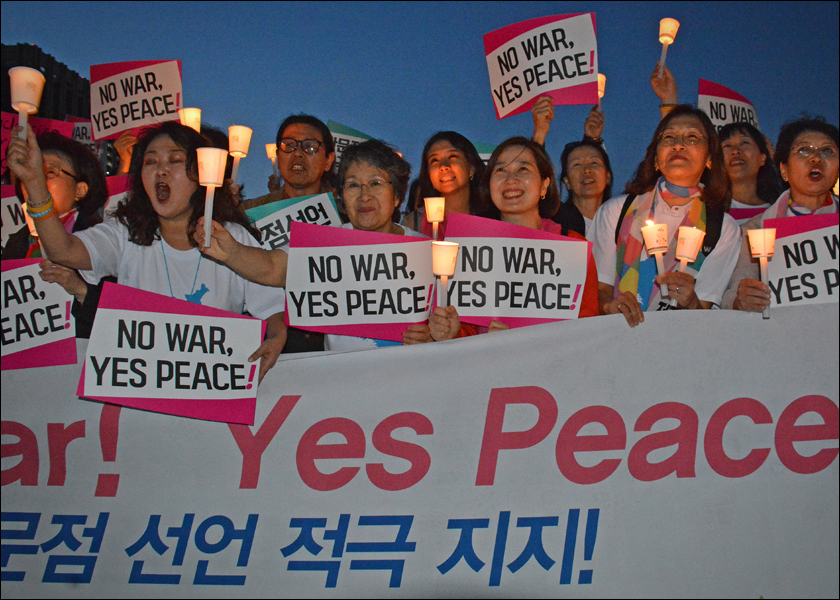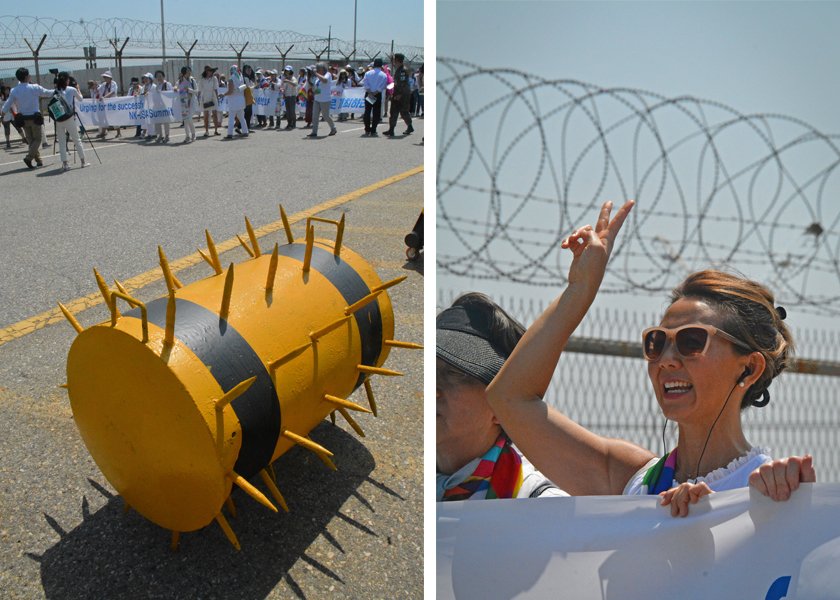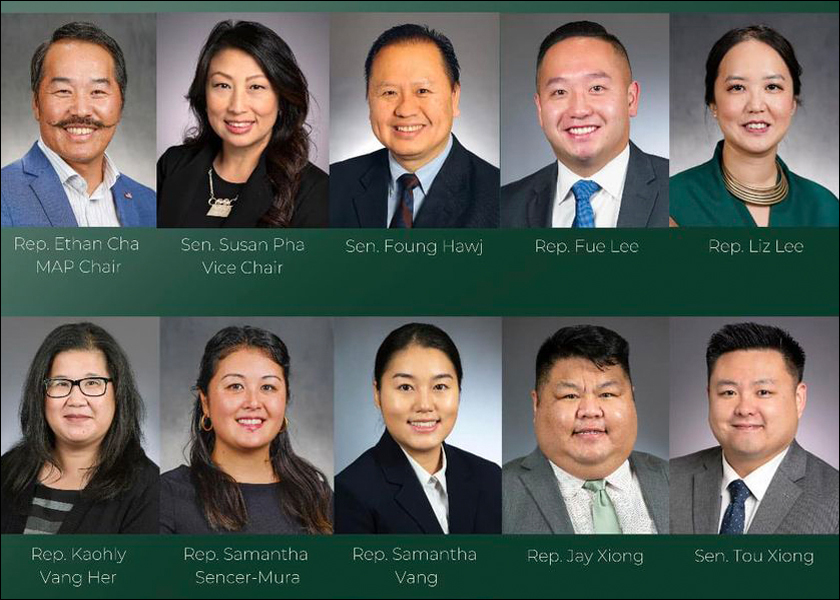Achieving it, sustaining it, and appreciating its gifts | By Martha Vickery (Spring 2023)

The week that the pandemic was declared to be over was the week I had my first (and hopefully only) bout of COVID.
It was load of irony and misery together. That the pandemic was over officially was apparently never announced to the COVID virus, which keeps on spreading in stealth mode as we all soldier on, trying to believe we are in a post-pandemic era. Just goes to show you how much you should believe from the media, or from bureaucracy.
For the record, I had called a pharmacist a couple weeks before the fateful positive test to propose it might be time for a third booster, but she said she was not authorized to administer third doses yet. Two weeks later, I tested myself after a long flight and guess what?
During my eight or nine days of full-blown sickness, I was in denial about being sick (when I wasn’t taking an unscheduled nap) and determined to spend a few hours a day working from home. It wasn’t a great idea though, because my focus, along with access to my sinuses, was shut down. I would forget things people just told me and lose objects I had just put down. At one point, I heard a voice in my headset gently say “Umm, could you mute?” as I banged around in the kitchen, forgetting I was listening in on a work call. I was like an actor who is pretending to work.
However, when I could finally breathe normally and smell things again, my lack of focus persisted along with a dragging fatigue. The grip of COVID brain fog persisted. I never felt rested, and was falling asleep at 7 or 8 p.m., a time when I am usually just getting going. I had worried thoughts of “why can’t I get with it?”
I made more elaborate lists, reviewing my calendar to prepare for next day’s schedule. It helped, but it’s nothing like naturally knowing what day it is, what time it is, and how the course of events is going to play out. I stepped up my activity during the times I was feeling energetic and wide awake, knowing there were a limited number of hours before I crashed.
It was bewildering.
Then recently, my focus and energy, were suddenly back to near-normal. It was such a relief.
We don’t miss it until it’s gone. That is true of many ordinary things, but I never thought, until just recently, that I would ever miss the ability to focus and plan.
The experience taught me a better understanding of the “long-COVID” sufferers, who have persistent brain fog and many other debilitating long-term symptoms. I could see how that condition could quickly dilute a purposeful life into one of just hanging on from day to day.
I also thought about how focus is a primary skill. It drives our productivity, our sense of purpose, our feelings of accomplishment. There is a teaching in yoga that “energy follows thought,” which means we cannot achieve a goal until we can direct our focused energy toward it. Thoughts may be just thoughts, but every goal begins with one. Life’s most important achievements require long-term thinking – lack of focus robs us of that capability.
This year marks the 70th anniversary of the Korean War’s armistice. On the topic of focus, the policy approach of the U.S. towards North Korea over the years has been inconsistent, dilute and contradictory, kind of a “long COVID” process of (non) policymaking. Informed Korea watchers agree – there have been no concrete achievements, basically, in the last 70 years.
Looking at KQ’s issue of spring 2013 for our running column on 10 Years Ago in KQ, the same on-again, off-again policy of what the Obama Administration called “strategic patience” and what the Trump administration made a show of but did nothing to fix, is still with us today, with the Biden Administration focused on the other side of the world. The hot war in Ukraine, and the new leader we love to hate – Putin – makes the Korea relations issue seem long ago and far away.
But that’s not the case. There is a severe ongoing human cost, not to mention the huge economic cost on us, the taxpayers, of ignoring a war that was never concluded with a peace treaty, and never resolved with normal diplomatic relations.
A symptom of this cost is the brinksmanship that South Korean and U.S. forces get into regularly by carrying out war games in the disputed waters between North and South Korea – it happened again recently. There is frequently news reporting when North Korea shoots a ballistic missile into the sea, as it did last week, but no reporting on the precipitating circumstances of that missile test – that North Korea is afraid and angry about the war games taking place right off its shores. What nation would not be?
Many peace organizations have been at it for much longer than 10 years ago, pushing for a formal end to the war. There have been so many peace actions, Congressional lobbies, conferences, and educational forums over the years. By now, we should have a well-educated Congress, which nonetheless continues to take no action on this important diplomatic issue.

In 2015, a global group of women peace activists held rallies and marches in both North and South Korea, and crossed the DMZ from North to South. That group, Women Cross DMZ, is still hard at work, and is the chief organizer of a coalition behind the upcoming 70th anniversary event in Washington, DC, July 26 through 28, which will urge the government to focus its energy on a peace treaty (see calendar item).
Women Cross DMZ, with coalition partners, has moved the needle towards peace over the years, standing in for the voice of marginalized survivors of the war, particularly separated families, and for the concerned next generation, who feel at risk of a new war in their lifetimes. However, really moving legislators and diplomats to work on a peace treaty requires more – it will take sustained focus and a collective political will to get things done. Some stakeholders and lawmakers are motivated and on board, but not enough of them.
In other business of the last quarter, the so-called “trifecta” state legislatures (where the House, Senate and governor are all dominated by the same party), got a rare opportunity to focus in on important business and work at top speed this legislative session. There are currently 17 Democratic trifectas, (four more than last year) and 22 Republican trifecta states — about the same for Republicans as it has been for many years.
This year, Minnesota is one of the new trifecta state governments, with the House and Senate dominated by the Democrats, with Democratic governor Tim Walz pushing an ambitious agenda. A new bill signing was publicized once or twice a week, and with a huge budget surplus of an estimated $17 billion, there was a lot of money to throw at the state’s neglected infrastructure and social programs.

Minnesota’s Asian Pacific Caucus (the MAP Caucus) announced early on this year that it would be a good session to work on bills to benefit the Asian American community and the larger community of new immigrants and people of color. With a deadline of perhaps only one session to enjoy the speed and efficiency of a trifecta government, Minnesota Democratic legislators worked with purpose and focus, passing a volume of social program bills that have been called unprecedented in the state’s history.
Certain bills were aimed at uplifting and celebrating Asian Minnesotans and other people of color, including a bill to make ethnic studies a requirement for high school graduation (with a two-year phase-in period). A bill was also passed to supply small operational grants to ethnic non-profits, the kind of grant help that can fund a salary or plan a program, so that smaller non-profits can compete with large organizations for larger state, federal or corporate grants. The Coalition of Asian American Leaders was a key resource for that bill.
There was also a hate crimes recognition/training bill that I first reported on during the 2020 legislative session. Knowing how to charge and prosecute for hate crimes was a first step. Among other provisions, the bill will fund training for law enforcement staff, to help them to recognize (and act appropriately on) a hate crime when they see one. It was a slow roll-out over several years, but it finally passed in 2023.
Other bills targeted to make life easier for all parents of young children also became law, including a universal pre-kindergarten program, a grant to make school breakfasts and lunches free for all kids, and a paid family and medical leave bill, so that workers can be paid for time off for a medical condition, or for a new child or other family transition. The Child Care Aware bill will supply child care assistance, child care workforce support, licensing changes, and funds to build up infrastructure and technology. The legislature also passed the Protect Reproductive Options (PRO) Act, which protects the right to abortion in our state, and also addresses maternity care, family planning and fertility services.
Other laws were passed that will particularly help new Minnesotans and the marginalized, including a bill to make it possible for ex-felons to get their voting rights restored to them, and one that eliminates the requirement to be a citizen in order to get a driver’s license.
Sometimes hard work barely bends the arc toward justice, as with many peace initiatives that need to sustain a long view of what is progress. At other times, the way is cleared for a short but intense flurry of productivity. In any case, no one’s efforts should be judged completely on the results that come from it. Even the bills that seemed to get passed in a hurry took years to develop and put down roots before coming to fruition in the social policy-friendly climate of 2023. Sustained focus toward a goal is hard work.
In Washington, DC, starting July 26, peace activists will educate, rally and support each other as they have for many years, to agitate for the political will to bring a peaceful resolution to a very long war. Maintaining the focus and enthusiasm for short-term or very long-term goals, is as paramount in social justice pursuits, as it is in our individual lives. Whether it’s international peace-building or a state social programs agenda, getting things done might be a simple formula, but it is never easy.


